Explore the Best AI Image Gallery

Pixels on Skin: How AI Images Are Transforming Marketing
The world of marketing is undergoing a dramatic shift, driven by the rapid advancements in artificial intelligence. One of the most exciting and impactful developments is the rise of AI image generation, enabling marketers to create stunning visuals with unprecedented ease and speed. From social media campaigns to product mockups, AI-powered imagery is transforming how brands connect with their audiences.
A Creative Revolution: The Power of AI-Generated Images
AI image generators leverage sophisticated algorithms trained on massive datasets of images and text descriptions. These algorithms can analyze user prompts and generate original, high-quality images tailored to specific marketing needs. This opens up a world of possibilities for marketers:
- Rapid Content Creation: AI can generate multiple image variations in minutes, saving valuable time and resources compared to traditional design processes.
- Cost-Effectiveness: Outsourcing image creation to AI tools can be significantly more affordable than hiring professional designers for every project.
- Customization and Personalization: AI can create images tailored to specific target audiences, demographics, or even individual customer preferences.
- Experimentation and Innovation: Marketers can easily experiment with different styles, concepts, and aesthetics using AI, leading to more creative and engaging campaigns.
Applications Across Marketing Channels
The versatility of AI-generated images extends across various marketing channels:
- Social Media: Eye-catching visuals for posts, stories, and ads can increase engagement and reach.
- E-commerce: Product mockups, lifestyle shots, and variations of product images can enhance online shopping experiences.
- Content Marketing: Blog posts, articles, and infographics can benefit from AI-generated illustrations to improve readability and visual appeal.
- Email Marketing: Personalized visuals in email campaigns can increase open rates and click-throughs.
Navigating the Ethical Landscape
While AI image generation offers tremendous potential, it also raises ethical concerns that marketers must address:
- Copyright and Ownership: The legal implications of AI-generated content are still evolving, requiring careful consideration of intellectual property rights.
- Bias and Representation: AI algorithms can perpetuate existing biases present in the training data, leading to potentially harmful or discriminatory imagery. It is crucial to ensure that AI tools are used responsibly and ethically.
- Transparency and Disclosure: Marketers should clearly disclose when AI has been used to create images to maintain transparency with their audience.
Future Trends: The Evolution of AI-Powered Imagery
The field of AI image generation is rapidly evolving, with continuous advancements pushing the boundaries of whats possible:
- Increased Realism and Detail: AI algorithms are becoming increasingly sophisticated, generating images with even greater realism and detail.
- Interactive and Personalized Images: Imagine AI-generated images that adapt to user input or preferences, creating truly personalized experiences.
- Integration with Other Technologies: AI image generation will likely be integrated with other technologies like augmented reality (AR) and virtual reality (VR) to create immersive and engaging marketing campaigns.
Conclusion
AI image generation is undoubtedly transforming the marketing landscape, empowering brands with new tools for creativity, efficiency, and personalization. By embracing these advancements while navigating the ethical considerations responsibly, marketers can harness the power of AI to create truly impactful and innovative campaigns.
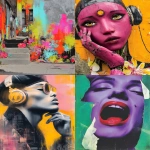

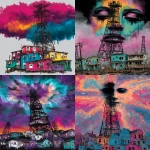



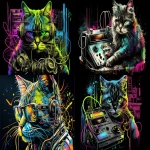





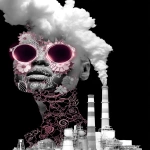
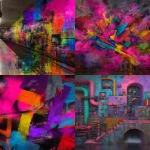







](https://images.ai-img.art/thumbnails/150/33d5e6d1da2b8ec2c4b8eab20d051c27c26d7a4991a77faf06fd03e96617fb1e.webp)
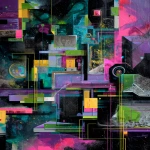



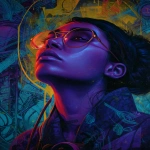

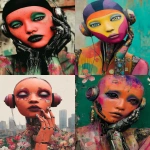













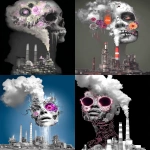


](https://images.ai-img.art/thumbnails/150/1aa8215ea9a4f6970e81a10bdb4feb3b08d5e1a202c3c7ed2c9380f2f63d5a74.webp)

](https://images.ai-img.art/thumbnails/150/664a559b73eaff070d6f7fc7b3b151718aef9fa3a3f12f90b3c9092ceaa3cb56.webp)

